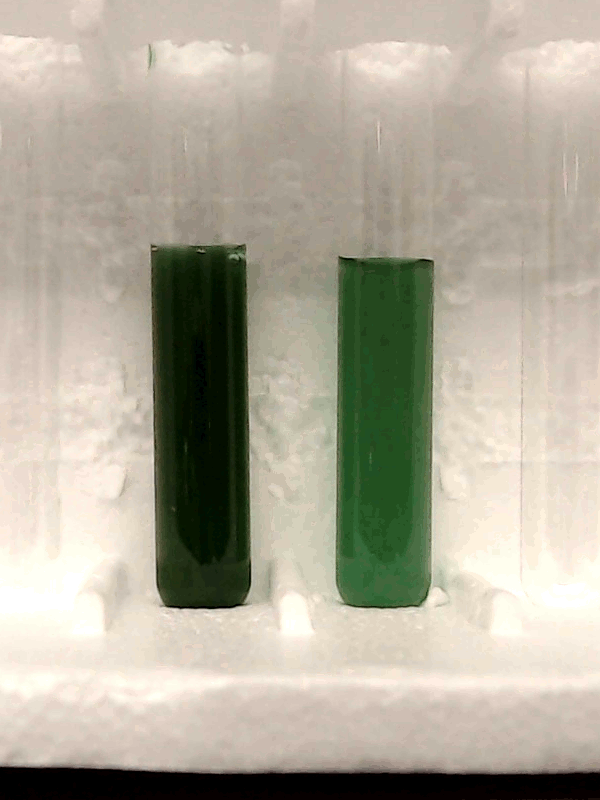In volcanic ocean vents off the coast of Italy, researchers have discovered a new strain of cyanobacteria that could pack a particularly effective punch when it comes to capturing carbon dioxide, one of the driving forces of climate change.
The cyanobacterium, or alga, is officially known as UTEX 3222, but the team behind its discovery have given it the far catchier nickname of “Chonkus” – because, in the presence of carbon dioxide, this thing grows very, very quickly.
Chonkus was first collected in seawater samples taken from shallow volcanic seeps near the island of Vulcano. Since these vents get a healthy dose of both sunlight and gases, researchers suspected that they might make a good place to search for photosynthetic organisms well-adapted to not only thrive in the presence of CO2, but even capture it.
“An incredible amount of microbial diversity exists out there in the world, and we believe it’s more efficient to seek out the microbes that have already evolved to succeed in human-relevant environments rather than trying to engineer all of the traits we want into lab-grown E. coli bacteria,” said Braden Tierney, co-corresponding author of the study describing the findings, in a statement.
The seawater samples were taken to a lab in Boston where, upon growing the cyanobacteria within in familiar conditions – including lots of CO2 – researchers found and isolated Chonkus.
Experiments revealed that Chonkus was a fast grower – much faster, in fact, than other fast-growing strains of alga, capable of doubling its colony size in just over 2 hours when in liquid. Even the individual cells grew to higher density and within these swollen cyanobacteria, the team also found storage granules packed with carbon.
Those traits by themselves make Chonkus a desirable candidate for sequestering carbon, but it turns out this strain has a triple whammy up its sleeve – it also sinks much more quickly than other fast-growing strains of cyanobacteria.
Capturing large amounts of CO2 and sending it to the seafloor for quick collection makes Chonkus pretty appealing to those exploring how we can use what nature has already provided us with to tackle the problem of climate change.

Chonkus, on the right, sinks in a test tube of water much more quickly than another common cyanobacterial strain.
Image credit: Ted Chavkin
“The traits inherent in the naturally evolved cyanobacteria strains described in this research have the potential to be used both in industry and the environment, including biomanufacturing of useful carbon-based products or sinking large volumes of carbon to the ocean floor,” said study author George Church (who is also the co-founder of the company trying to bring back the woolly mammoth).
“While further modifications could be made to enhance these microbes’ abilities, harnessing billions of years of evolution is a significant leg up in humanity’s urgent need to mitigate and reverse climate change.”
The study is published in Applied and Environmental Microbiology.
Source Link: Say Hello To Chonkus, The Sizeable Cyanobacterium That Could Combat Climate Change